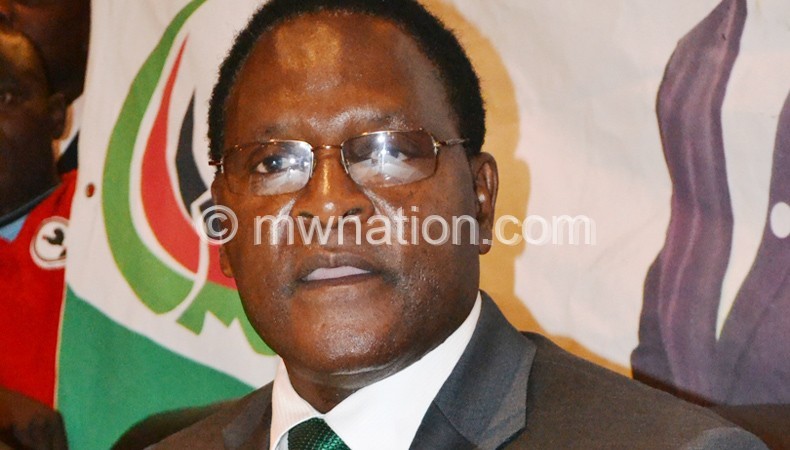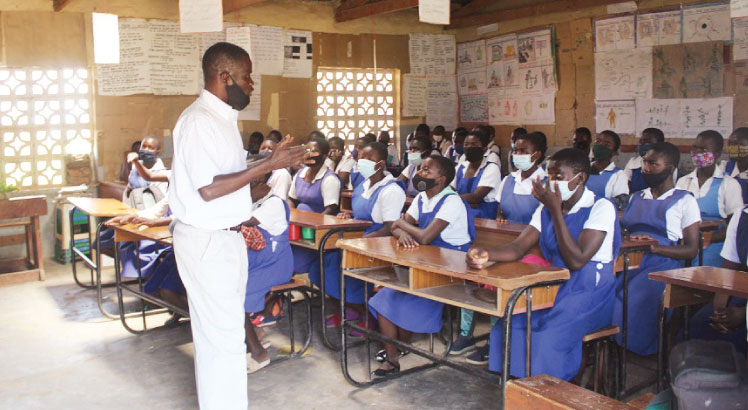PARTY MANIFESTOS: WHAT THEY ARE OFFERING ON ECONOMY

Assuming voters chuck-out President Joyce Banda on 20 May, 2014, she would definitely leave the centre-stage amid high interest rates, high but falling inflation rate, improved domestic tax collection, high availability of fuel and moderate availability of forex.
On the flip-side, assuming she remains steady in power, Banda will have an uphill task of bringing back inflation to single-digits, lower down the cost of borrowing, sustain the availability of fuel and foreign exchange as well as grow the economy by an average of six percent and above for such a growth to be meaningful to impact on reducing poverty levels.
But as it is now, only heavens know the outcome of the May 20 Tripartite Elections and it is beyond the scope of this write-up anyway.
In recent times, major political parties such as the UDF, MCP, PP and DPP have been unveiling their manifestos, a reflection of their beliefs, values as well as long-term developments for Malawi.
This week, Business Review perused some of the manifestos, especially on what the parties are dangling to save the economy and bring about the much-needed macroeconomic stability.
Just like any other economy in the world, Malawi yearns for macro-economic stability which often entails low and stable inflation rate, low long-term interest rates, low national debt relative to a country’s gross domestic product (GDP), low fiscal deficit-the gap between government expenditure and tax revenue minus borrowing and grants as well as currency stability.
But which party is ready to stabilise and save the economy from the jaws of callous and persisting economic instability?
What MCP has on offer
I called MCP deputy director of economic affairs Paul Kwengwere. He sounded passionate to talk about what the party has in store for Malawians as far as the economy is concerned.
“So the MCP government will pursue sound economic policies geared at increasing and sustaining economic growth, maintaining inflation rate at single digit, maintaining flexible exchange rate and improving foreign reserve position.
“We will have short, medium and long-term measures to address the economy and in the short- term, we would like to bring back fiscal discipline, improve revenue collection, control expenditure while in the medium-term, we will ensure import substitution and reduce trade deficit and reduce the cost of production,” he said.
The party holds the view and belief that the Malawi economy has struggled to attain and maintain the required minimum growth rate of six percent to help lift the majority of poor Malawian out of poverty.
But suffice to say that even during the founding president Hastings Kamuzu Banda era, poverty levels were still widespread among Malawians albeit the purchasing power still relatively higher than today.
Real gross domestic product (GDP) growth in 2012 fell to 1.9 percent due to contraction in agriculture, slowdown in manufacturing, slowdown in wholesale and retail, the devaluation and floatation of kwacha and the hike in interest rates.
According to the party’s manifesto, since 1994, the past three regimes have sought to increase government expenditure at the expense of macroeconomic stabilisation, economic productivity and general allocative efficiency.
“In the 1990s, Malawi’s economic progress compared favourably with that of its neighbours, Mozambique, Zambia and Tanzania but today Malawi lags far behind all these three countries,” reads part of the manifesto on economy.
The MCP, according to the blue-print, understands that the Malawi Growth and Development Strategy (MGDS) II-which is the national development plan for Malawi-is sound, but its implementation has been betrayed by poor governance, corruption and lack of monitoring
DPP promises to re-design the economy
Business Review listened attentively to the speech made by its President Peter Mutharika at the launch of the manifesto. He did not mince his words, but said the economy currently is in shambles.
However, it is still debatable to voters and all Malawians as to how best Mutharika’s economic policies will save the economy and bring economic stability for proper planning by businesses and consumers in general.
“The DPP refused to believe that there is no alternative to the economic policies which the current government is implementing. The current governing party chose carelessly the mix of neo-liberalism, devaluation, currency floatation and automatic pricing,” reads the 60-paged DPP manifesto in our possession.
President Joyce Banda administration devalued the local currency by a magnitude of 49 percent in 2012 and consequently liberalised the currency, a monetary policy stance which drew mixed reactions among commentators.
According to the DPP, the part-whose founding president was a fierce critic of devaluation of the kwacha-pledge that it shall pursue the mixed economy and development State as twin paradigms that will promote the interests of the people while protecting economic growth.
It says the party will give special importance to the design and the implementation of sound macro-economic policies as a critical factor to support good governance.
“We will create an enabling environment to achieve four principal objectives of attaining macro- economic growth, allocating resources more efficiently, mobiliSing domestic and foreign resources to support economic growth and reducing public expenditure.”
It says the blue-camp will redesign macroeconomic programming by striking a balance between short-term policy for crisis management and medium to long-term perspective planning leading to real transformation of the domestic economy.
On monetary policy, the party insists that it will implement monetary policy reforms focused towards reduction and eventually eliminating huge domestic borrowing, reducing balance of payments deficits and lowering of interest rates.
The party has also re-insisted that it shall implement a zero-deficit budget on recurrent expenditures and shall observe a strict fiscal discipline as provided in the law. But obviously a word of caution should be put forward to the DPP as the infamous zero-deficit budget saw most private sector players closing down while others retrenched due to punitive tax measures.
UDF commits to fiscal prudence
On Tuesday, Business News attempted to get hold of its spokesperson on issues of finance Victor Mbewe, but our attempts proved futile.
But the man, a former Reserve Bank of Malawi (RBM) Governor, has been on spotlight in a number of public fora, the recent being on a public debate organised by Zodiak Broadcasting Station (ZBS), advancing UDF agenda on economy.
Summarising the tone by Mbewe and going through the party’s manifesto, basically the yellow camp is promising an ordinary villager that they will strive to ensure fiscal prudence and discipline in managing public purse.
Perhaps the party draws its lessons from the past when it was in power which to a greater extent was characterised by poor economic governance, especially the misappropriation of tax payers money.
Speaking when he launched its manifesto at Njamba Freedom Park, the party’s president Atupele Muluzi bodily said the ‘new UDF’ has comprehensively studied the ‘ailing’ economy of Malawi and is better placed to solve the economic woes.
And the party’s manifesto has no kind words on the current state of the economy at all.
It says the country continues to face low growth and productivity as well as a high debt burden.
UDF continues in its manifesto that it is clear that Malawi’s economy is on the edge of a dangerous fiscal precipice, adding that only decisive, prudent and expert management can avert a looming disaster arising from the economic ineptness of the last two administrations.
“Domestic borrowing remains high. The UDF administration realises that the success of its economic reforms will depend on commitment to financial and fiscal prudence and discipline in managing the public purse.
“The highest degree of professionalism, integrity, accountability and transparency must be exercised by everyone entrusted with managing the meager government resources in order to deliver prioritised and targeted essential needs of all peoples of Malawi,” reads the manifesto in part.
But going forward, what is in stock by the yellow camp to rescue the economy?
The UDF says it will pursue robust economic reforms to bring stability and grow the Malawian economy and will achieve a consistent GDP growth rate of six percent and above to achieve a meaningful reduction of poverty.
It says the party will implement a self-imposed austerity programme which will include minimising overseas travel by the president, vice-president and all Cabinet ministers and senior government officials, among others.
On taxes, UDF envisages to broaden the tax base by expanding the catchment area and number of tax payers and ensuring that all individuals and businesses eligible to pay taxes become compliant and meet their tax obligations.
The party also thinks of pursuing deeper integration in the Sadc and Comesa economic blocs and more effective participation in international markets, to reposition the country to seize on emerging trade and economic development opportunities.
PP pledges transformation, eliminating macro-economic imbalances
The People’s Party (PP) was the first to launch its manifesto at the Bingu International Conference Center (BICC), but listening to President Banda, there was little she bragged about how she and her team intend to heal the macro-economy.
Notably, Banda boasted that she envisages growing the economy by an average of seven percent in the next five years in tandem with the projection by Ernest and Young, a multinational professional services firm headquartered in London.
But her vision was devoid of how best PP intends to grow the economy and cushion it from the adverse exogenous shocks like terms of trade (Tot).
Going through the PP manifesto, the party hinges on the fact that the internal imbalance is evident in perennial budget deficits while the external imbalance manifests itself in the enormous gap between the cost of imports and the revenue.
The party also envisions widening the tax base by strengthening administrative capacity and reforming the system for granting exemptions and eliminating tax evasion.
A pledge to widen tax base but with caution, apparently, must be a reaction to relentless cries by the Malawi Economics Justice Network (Mejn) which has been championing a fair and just tax regime in Malawi.
It is generally perceived that Malawi’s tax system is punitive and regressive as it allows only a few individuals to pay tax.






Malawi economic woes can only be addressed by industrial
revolution! That will put Malawi on the map, improve national competitiveness,
job creation, strengthen infrastructure expansion, and make the country strong!
Anything else is wasting more time and wasting the young generation. We need to
move the country to the next level. Industrial revolution now!